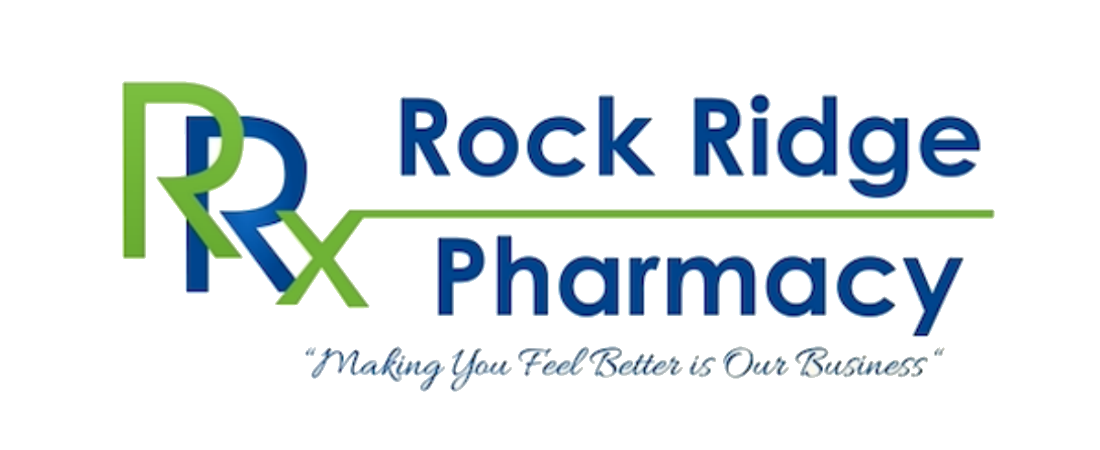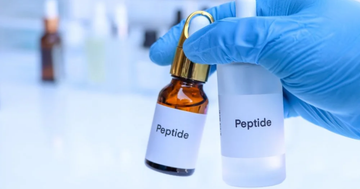Peptides are trending. They are gaining attention as a promising tool in various applications, including anti-ageing therapies, loss, weight and muscle growth. And with more clinics and pharmacies offering compounding peptides, many people are asking: what are they, and are they worth considering?
This guide explains what compounding peptides are, why they’re different from mass-produced options, and how to make informed decisions when considering them.
What Are Compounding Peptides?
Peptides are short chains of amino acids, essentially mini-proteins, that signal specific functions in the body. They naturally occur in the body and regulate various bodily functions, including hormone production and skin health.
When peptides are compounded, it means they are custom-prepared by a licensed pharmacy specializing in compounding. Instead of buying a pre-formulated product off the shelf, you’re receiving a version that has been tailored to your doctor’s exact specifications, dose, and delivery method.
This is helpful when a patient has unique needs that commercially available peptide medications cannot meet. For example, some patients may require a lower or higher dosage than the typical dosage, or a specific combination of peptides to address multiple health concerns.
Are Compounding Peptides Legal and Safe?
Compounding pharmacies must follow strict federal and state guidelines when preparing custom medications. In the United States, compounding is regulated by state boards of pharmacy, and the FDA closely monitors the process, especially when it involves biologically active agents like peptides.
Still, not all facilities meet the same quality standards. That’s why it’s important to work with licensed, accredited compounding pharmacies that use pharmaceutical-grade ingredients and test each batch for potency and purity.
At Rock Ridge Pharmacy, products are carefully sourced and quality-assured. Although not all compounded peptides are sold online due to regulations, Rock Ridge’s knowledgeable pharmacists can guide patients toward safe, clinically sound options when peptides are prescribed.
What Can Compounding Peptides Be Used For?
There are dozens of peptides in clinical use today, each with its own therapeutic potential. Some of the most commonly compounded peptides include:
- BPC-157 – Often used for healing tissues, ligaments, and tendons.
- CJC-1295 / Ipamorelin – Targets growth hormone release to support muscle repair and fat metabolism.
- Thymosin Beta-4 – Supports immune function and cellular regeneration.
- Melanotan II – Sometimes compounded for skin pigmentation or libido support.
Each of these peptides can be prepared at specific concentrations tailored to individual patient needs. For example, someone with joint damage may need a different formulation than someone using peptides for skin elasticity.
Who Typically Uses Compounded Peptides?
Compounding peptides are not just for athletes or celebrities. People who seek more tailored wellness options, such as those recovering from surgery, dealing with hormone imbalances, or trying to manage autoimmune disorders, are now looking into compounded peptides for additional support.
That said, they are not a first-line treatment. These compounds are typically prescribed after a thorough medical evaluation, often when other therapies haven’t yielded results.
How Do You Know If Compounded Peptides Are Right for You?
This conversation should always begin with your healthcare provider. A licensed physician can assess your symptoms, health history, and goals, then determine if peptides are appropriate. If they are, they’ll prescribe a compounding pharmacy.
It’s important not to order peptides from unverified online sources. Many websites sell peptides intended for research use only, which are not meant for human consumption. They often lack proper testing, labelling, and sterile preparation.
If your doctor prescribes a compounded peptide, choose a pharmacy with a reputation for quality. Rock Ridge Pharmacy works closely with practitioners to prepare compounded medications, including peptide formulations, based on proper clinical evidence and pharmaceutical-grade standards.
What to Look for in a Quality Compounding Pharmacy
There are a few key features that set a high-quality compounding pharmacy apart:
- Accreditation: Look for PCAB (Pharmacy Compounding Accreditation Board) certification.
- Transparency: The pharmacy should be able to provide certificates of analysis, ingredient sourcing, and dosing protocols.
-
Communication: You should be able to speak with a licensed pharmacist who can explain how the peptide works and how to use it safely.
Rock Ridge Pharmacy meets these standards. Patients and providers trust the team because they prioritize safety, evidence-based compounding, and customer education.
What Are the Risks?
As with any biologically active compound, peptides can carry risks if used incorrectly. Some people experience side effects such as fatigue, changes in appetite, or water retention. If compounded in unsanitary conditions or dosed improperly, the risks rise significantly.
That’s why FDA guidance and physician involvement are both key parts of the peptide therapy process. Self-prescribing or purchasing peptides without proper oversight increases the chance of adverse reactions or ineffective results.
Where Can You Get Trusted Peptides?
While licensed pharmacies must dispense peptide prescriptions and are not always available over-the-counter, many related products, such as amino acid supplements or collagen peptides, can be purchased online for general wellness use.
You can explore Rock Ridge Pharmacy’s broader selection of trusted wellness supplements here.
If you’re working with a healthcare provider and need custom medications, Rock Ridge Pharmacy also offers access to high-quality compounded formulas through direct physician collaboration.
Final Thoughts
Peptide therapy shows promise in many areas of health, but it isn’t a one-size-fits-all solution. Compounding peptides makes it possible to personalize therapy, but only when handled by professionals who understand the science and respect the safety standards involved.
If you’re considering compounded peptides, speak with your doctor. Then work with a pharmacy like Rock Ridge that’s known for expertise, accuracy, and clinical integrity.
Disclaimer: This blog is for informational purposes only. Always speak with your licensed healthcare provider before starting any new medication, including compounded peptides.





